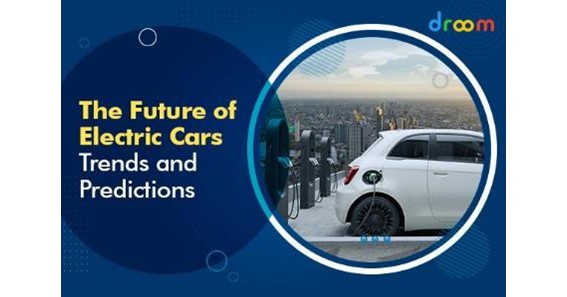As global concerns regarding air quality and climate change continue to escalate, the prominence of electric vehicles as the future of transportation becomes increasingly evident. With their inherent advantages, including reduced operating costs and an expanding array of available models, electric cars are poised to revolutionize the automotive industry. In this article, we will explore the current trends and make predictions about the future of electric cars.
Why EV Cars Are Trending in India?
- Significant cost savings on operation and maintenance:
The expenses associated with running and maintaining a vehicle are a substantial portion of its overall ownership cost. However, it is widely recognized that electric vehicle (EV) owners enjoy considerable savings on fuel/energy and maintenance expenses.
This is primarily due to the simplified nature of electric cars in India, which have fewer moving parts compared to traditional gasoline engines, resulting in easier and more affordable maintenance. EVs require minimal repairs or replacements, eliminating concerns about engine oil changes and making them a cost-effective option for car owners.
- Reduced reliance on oil and eco-friendly CO2 savings:
Oil, as a dominant energy source, poses numerous challenges, particularly as transportation heavily depends on it. Embracing electric mobility offers a cleaner and more sustainable transportation solution for everyone. As the number of EVs on the road increases, there will be a significant decrease in the demand for millions of barrels of oil in the future.
This shift not only brings economic benefits but also contributes to a greener future, reducing carbon dioxide emissions.
- Enhanced driving experience and improved public health:
EV cars in India offer an incredible driving experience by eliminating the need for gears and complex controls. With a simple focus on acceleration, braking, and steering, drivers can enjoy a smooth, convenient, safe, and noise-free ride. Moreover, the reduced noise emission of electric motors compared to internal combustion engines leads to additional benefits.
Extensive research reveals that vehicle noise can have detrimental effects on mental and physical health, including increased anxiety, depression, high blood pressure, heart diseases, stroke, and other conditions. By minimizing noise pollution, electric cars contribute to improved air quality and a healthier society.
- Convenient charging infrastructure:
Electric vehicles rely on electricity rather than fossil fuels such as petrol or diesel for charging their batteries. With an expanding network of EV charging stations, users now have the convenience of recharging their vehicles at nearby stations, eliminating the need to wait in long queues at CNG stations or petrol pumps.
Additionally, EV owners have the option to charge their batteries at home using charging equipment, providing further flexibility and ease of use.
- Tax incentives:
Opting to purchase or lease an EV can yield tax advantages. By registering an electric vehicle under a company’s name, one can benefit from a 40% depreciation in the first year, resulting in income tax savings.
Furthermore, the government’s support for electric car adoption is evident through the introduction of an EV policy, which offers additional benefits of up to Rs 1.5 lakh, encouraging individuals to embrace electric vehicles and enjoy financial incentives.
Driving Toward a Sustainable Future: The Rise of Electric Vehicles
The future of EV cars is promising, with the global market expected to continue its expansion at a compound annual growth rate (CAGR) of 21.7%. The projected growth indicates a significant increase from 8.1 million units to an estimated 39.21 million units by 2030. This surge in demand for electric vehicles is driven by various factors, including growing concerns about pollution and environmental impact.
Electric cars have become increasingly prevalent, with a wide range of all-electric vehicle options now available. They have become a familiar sight on roads worldwide. As countries like the U.K. and India have set ambitious goals to phase out combustion engine vehicles, the transition to electric vehicles is gaining momentum. This shift is further supported by reduced costs, a broader selection of models, and increased investments in charging infrastructure.
Another notable category in the electric vehicle market is hybrid electric vehicles (HEVs). These vehicles combine gas-powered internal combustion engines with battery-powered electric motors, offering a blend of conventional and electric vehicle features. HEVs provide the advantages of lower fuel consumption and reduced exhaust emissions while retaining the power and range of conventional cars.
Wrapping up
As we move toward a sustainable future, embracing electric vehicles is a crucial step in reducing pollution, combating climate change, and promoting a healthier environment for future generations. With the ongoing advancements in technology, increased affordability, and growing infrastructure support, the widespread adoption of electric vehicles is well within reach. By choosing electric cars, we can drive toward a cleaner, greener, and more sustainable future.
Click Here – What Is Postpe?


